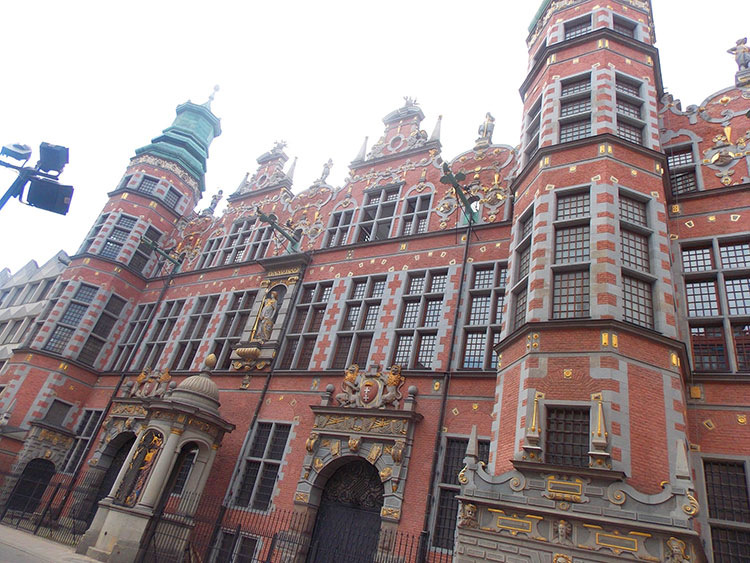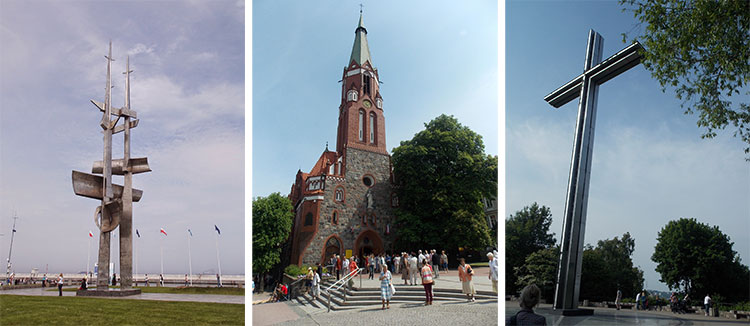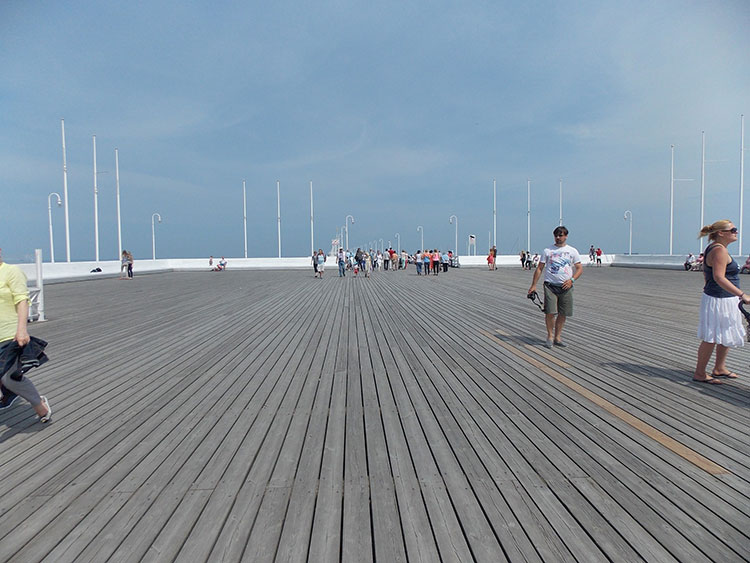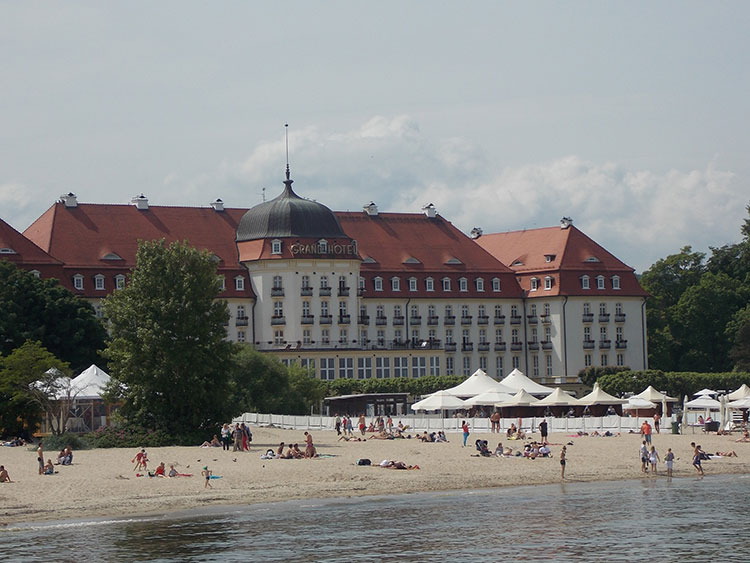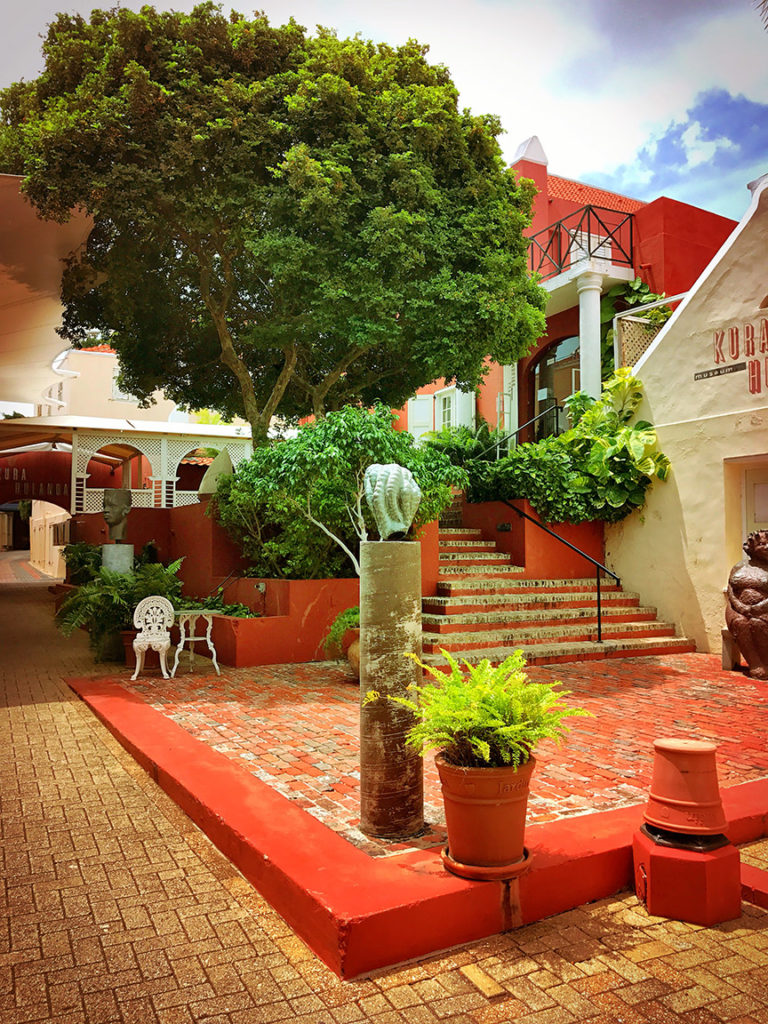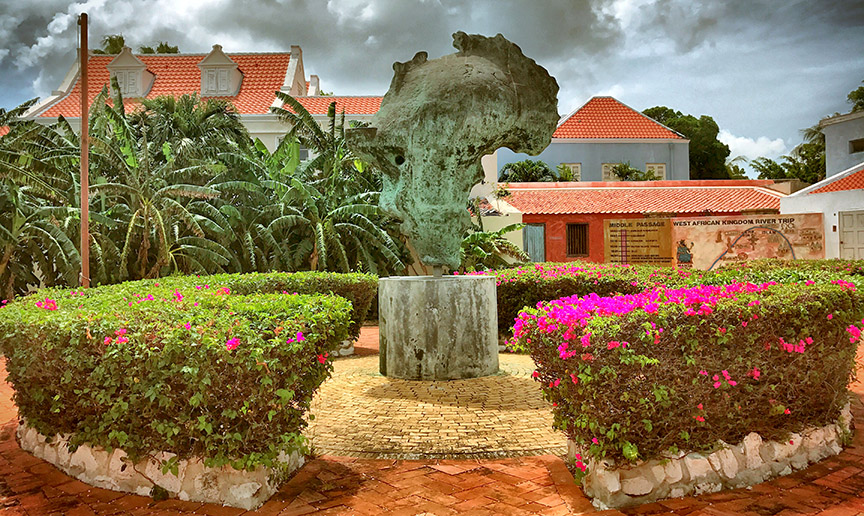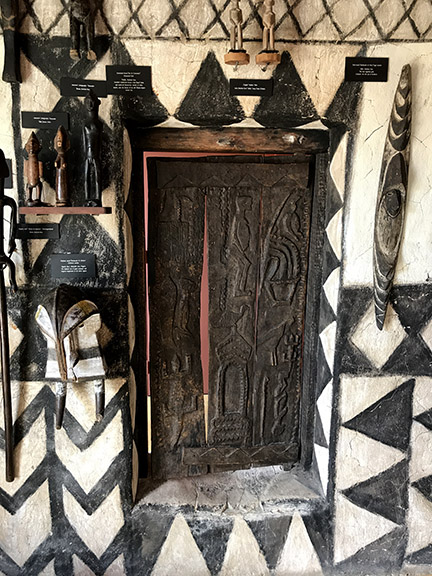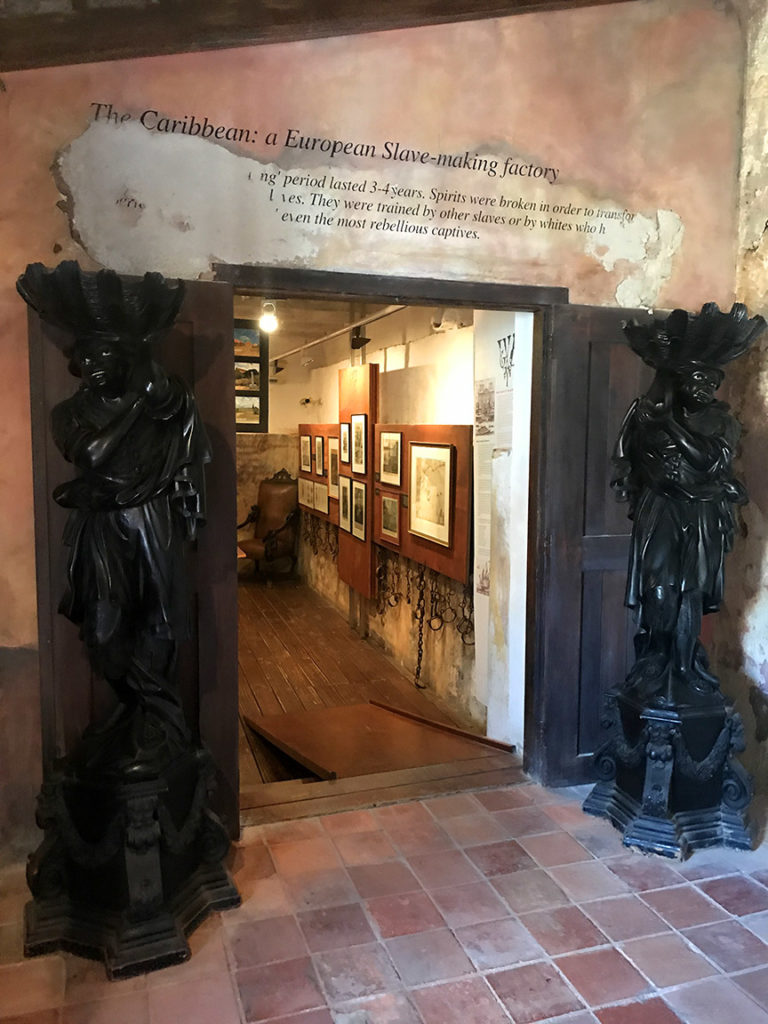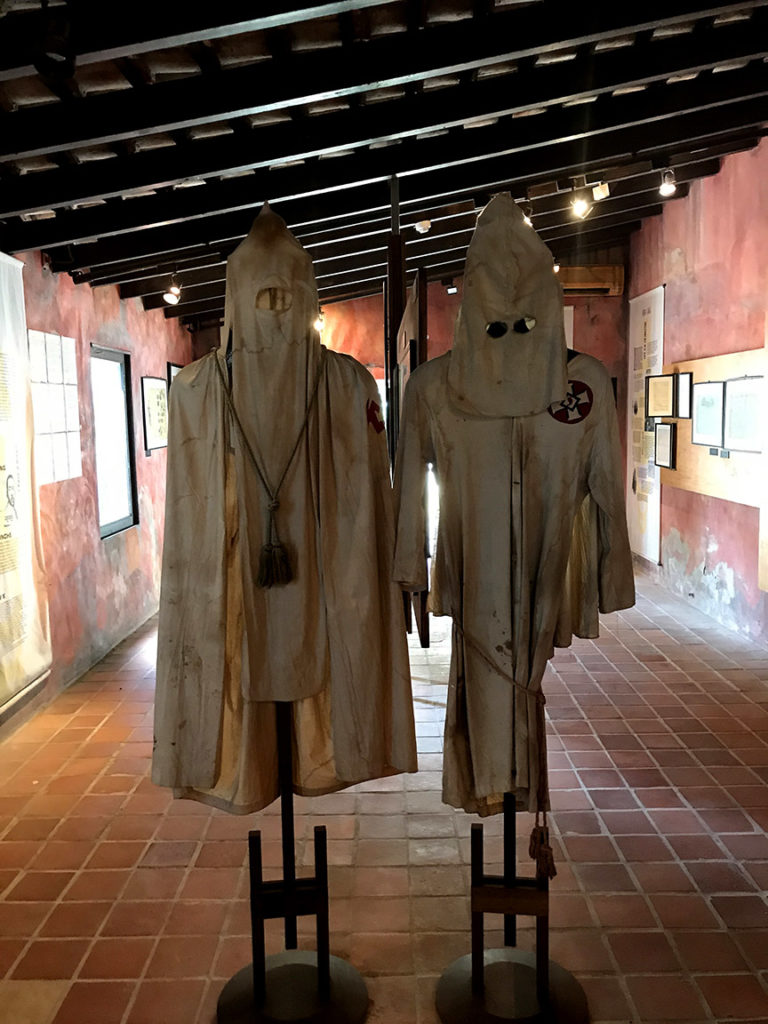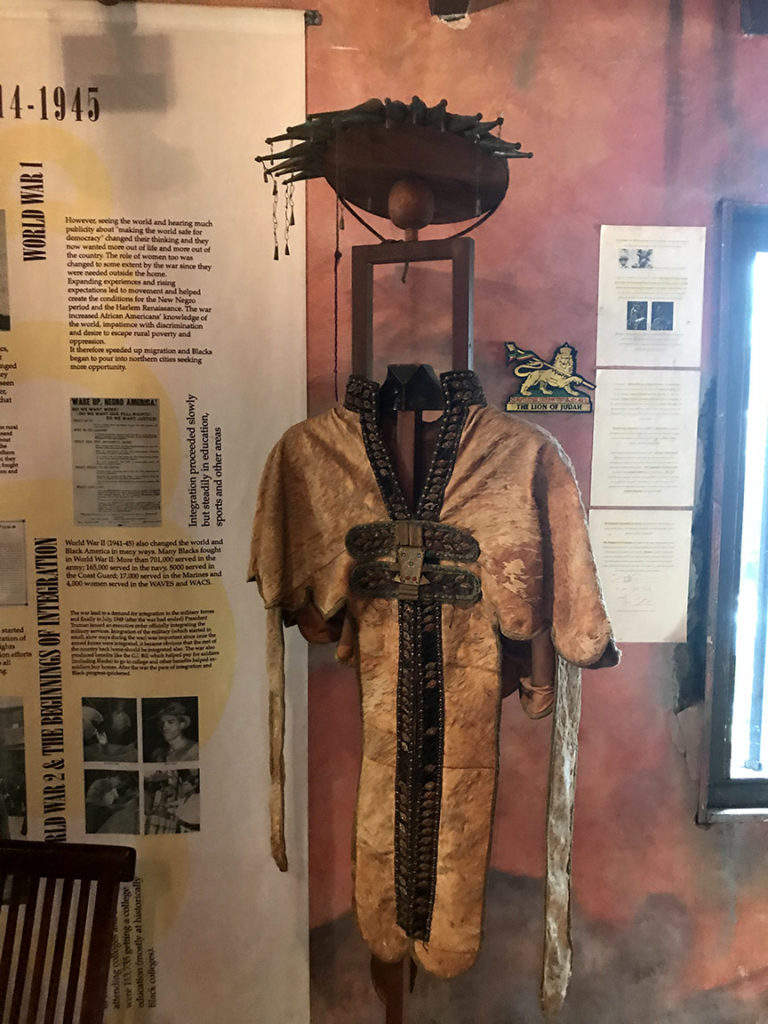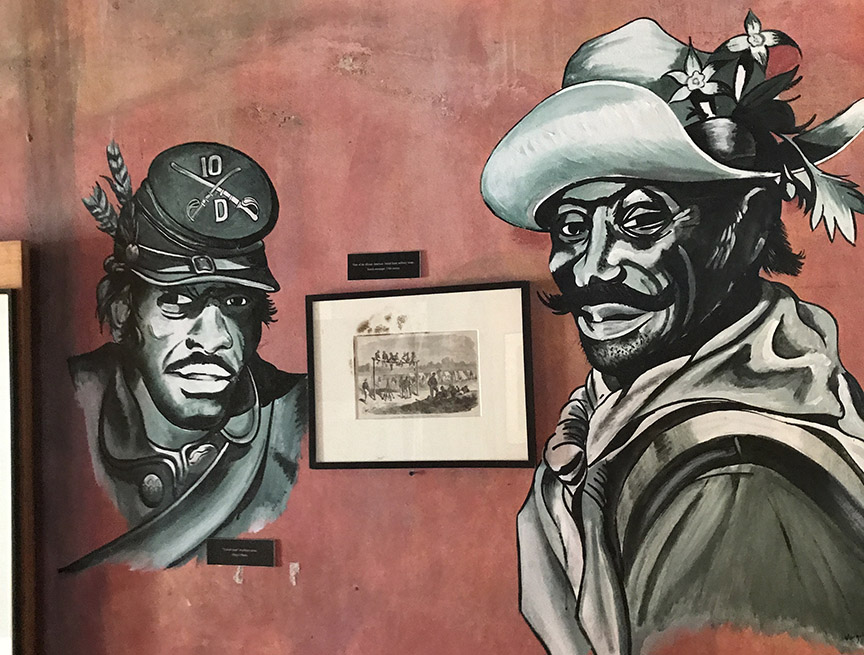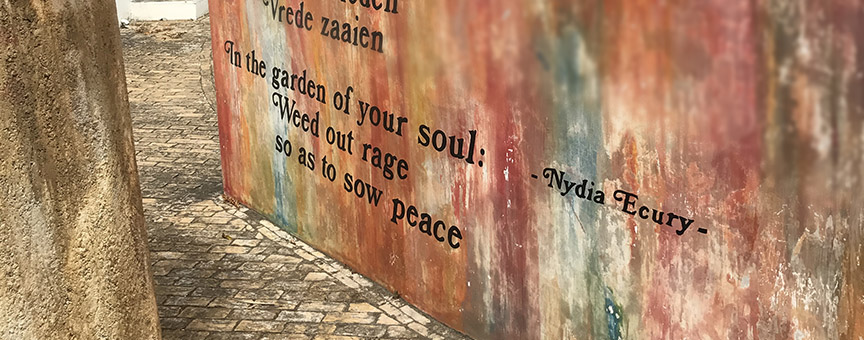During my first visit to Europe, Poland was a very unique view of the western world. Yep as with most of my international trips, I was the only black person I encountered in Poland. Danka, although more mature than me, seemed to have much more life and energy than I did. She took me on an adventure every single day. We started our day early in the morning and explored Poland until evening. We visited the Krzywy Domek (The Crooked House), Sopot’s pier, Długi Targ (Long Market), World War II museum and Old Town Gdansk.
Danka also knew Germany very well. She had worked there for some years so her German was still very good. Germany was just a one and a half hour flight from Poland. I had no German training what so ever. Danka was always there to help me figure out what I wanted to say especially in the stores.This is what I think made my trip so comfortable and fun. Being a mother of an amazing young lady close to my age, she was a natural at taking care of a younger person. She went above and beyond to make each experience enjoyable. On the train rides, and there were many, we talked about life lessons and what was most important. She taught me to see the heart of people not just what they did or said but their inner beauty. There was never a dull moment throughout or time together. I learned so much from her and what I miss most was her passion. She had a passion for design, and passion for life and a deep love for her only child Kinga.
I will miss her because she was my introduction to seeing life in a new way and a reminder to take life at it comes but never forget to enjoy the moments it gives you. I will miss her because her life was cut short in 2016. I will miss her because I no longer have the lively soul to help me look past the surface.
Europe will always remind me of her. The city streets, the lively people, the insightful conversations the moments in time that should be cherished. This was Danuta, this is Europe. After my trip to Germany I was able to visit Italy and see my first “Wonder of the World”. I however could not mention Europe and my first trip there without mentioning the soul that brought it to life for me.
~ in memory of
Danuta Maria Rusiniak
I decided to travel to Japan in 2016, as a birthday gift to myself. This was my first trip to Japan and I was very excited and I was not sure what to expect but I knew that my love of ancient culture far exceeded my love of modern culture and lifestyles therefore my anticipation was high.
A Japanese design, much like the country itself, is pristine and clean. The people have an unmatched respect for nature, each other and to visitors who explore their island home. Nevertheless, the Japanese have proven that they are able to live in harmony and peace, and have attained one of the highest living standards on earth.
Needless to say my first impressions of Japan surpassed my expectations. I started out by travelling with a group and our tour started out in Tokyo. The city of Tokyo is amazing and beautiful with a layout that lends for easy navigation. A country that often seems to move to its own beat, Japan has long been an innovator in digital technology.
So there is no surprise that the focus of Tokyo seems to be on anything technological and high tech stores line every street in this humming city. Even the fashion boutiques are filled with designs that are unique and clean cut. Even their street fashion continues to be influential throughout Asia and around the globe. I was so happy we started there.
Our first stop was the Tokyo Tower, which is basically a replica of the Eiffel Tower although not as tall. From the observatory one has a panoramic view of the Tokyo. Its cleanliness and the pristine nature of the city are evident. The Japanese have developed very unique customs and cultural trappings infused with modern designs. There is an interesting mix of modern high rise buildings and ancient temples. (Side note- this attention to design detail is even evident in the hotel bathroom with faucet, soap dispenser and water heater as one unit).
Our next stop was the Asakusa Kannon Temple which boasted really elaborate designs and bright colours. The Asakusa Kannon Temple is a Buddist temple and is one of Tokyo’s most colourful and popular temples. The legend says that in the year 628, two brothers fished a statue of Kannon, the goddess of mercy, out of the Sumida River, and even though they returned the statue to the river, it always returned to them. Consequently, the temple was built nearby for the goddess of Kannon. The temple was completed in 645, making it Tokyo’s oldest temple. The temple and its gardens are very manicured and it also has a nearby shopping arcade where visitors may purchase authentic craft items. Visitors come to worship at the temple, to shop or maybe just to sit in the gardens at the back of the premises where there is a nice pond with koi fish and a bird sanctuary.
Within the temple there is a waiting area or foyer, and on entering the temple the first thing you notice is that almost everything is of a golden design. Most persons offered money then proceeded to do their prayers in the shrine. It was my first experience or encounter with a Buddhist temple and while it was a lively and bustling place there was an air of solemnity. They have nurtured traditions, which serve to dissipate stress and enhance personal and social well being.
Our next was Mount Fuji. Mt Fugi at that time we visited was just poking her head out of a thick cloud cover as the area was just coming out of winter and moving into spring. The ride up the mountain was most breath taking as we could appreciate the landscape from a different view. Interestingly at the base of the mountain sits a hotel with a roller coaster right below the mountain. We were only able to go up the mountain to about 3000 feet, as the higher altitudes were not yet reopened after the winter season. Mount Fugi has a very spectacular view that is often experienced with a completely different weather system from the rest of Tokyo. For example, it may be snowing up in the mountain and sunny in the rest of Tokyo.
Our next stop was the city of Hakone
Hakone is located in the suburb area of Tokyo and be accessed by cable car. It is a beautiful, quiet and peaceful town. It has amazing houses with well-tended gardens. There are several hot springs where one may choose to take a bath. The shops along the route offers authentic Japanese craft and wares that vistors may browse and purchase. These include their renowned Japanese dolls and earthenware. If you are a fan of teas, there were several tea shops well as fashion stores.
After Hakone, we took a train to Kyoto. My love grew. Kyoto has more of the old style Japanese architecture that seemed to frozen in time along with the unique Japanese culture. Kyoto has old temples, a Geisha area and unique gardens. Kyoto had fast become my favourite town because it held all the styles and designs that I was most attracted to. This included calligraphy and the homes were made from wood and rice paper.
Being in Kyoto during Cherry Blossom season made my visit even more unique and special. Everywhere there were cherry trees that appeared to be wearing a huge pink cloud. Years ago the Government and its people gave the citizens of the United States cherry trees that were planted around the tidal basin in Washington, DC. Every year during the blossoming time, a festival was held in celebration of the friendship between both countries??
The tour continued with a visit to the Nijo Castle, the Ditpkjni Temple, the Sojan Temple and the Kyoto Imperial Palace. My favourite was the Kikatuji Temple or the Golden Temple. It’s a three story temple with the bottom level made entirely of wood, while the two top tiers made of golden leaves and its sits in the middle of the lake. Here again it was evident that great detail was paid to include nature without intruding or disrupting it. Everything is done in harmony.
Another great attraction is the Geisha Town we visited. There are a lot of stories about a Geisha, but for me the overarching story is that the girls represent beautifully decorated dolls that bring such beauty and sincerity to their environment. They are there to serve and to give, yet there is so much power in what they do and represent.
The Japanese people are innovative and while not lacking in technology, their number one focus is working in tandem with nature. Nature and the environment are features in every aspect of their lives and their design. Japan is my Asian love. The fascinating culture and the pristine designs speaks a lot to my personality. The nature of my being is not a loud one , and I believe that when I do speak it needs to be strong and meaningful. I feel that one’s story should impact the life of another. The people of Japan are bold but reserved, so they let the culture and design speak for them. One may be quiet yet still tell a lifetime of stories.
I feel a connection to this land and its people.
I love Japan
]]>I recently visited Curacao, and was prompted by a native to tour the slave museum. Now Curacao is a very unique island with a unique mix of cultures due to a diverse population made up of persons from Holland, and other regions of the Netherlands, as well as various Caribbean territories, including Jamaica; all around making Curacao a melting pot. Despite this diverse culture, with the majority of the population being Afro-Caribbean, what I found was that there is still racism and blacks are looked upon and treated differently in Curacao.
I was invited to visit the slave museum by a native Curacao woman. What stood out the most for me on the tour of the slave museum, is that throughout history, black people were never given a fair measure of life and opportunities for advancement. Ours is a history of challenges; always overcoming one obstacle or another; always fighting to improve our lives and prove ourselves a valuable part of the human race. What made me most proud however, was the fact that even through all of this, black people still to this day continue to fight, continue to move forward, continue to press ahead; “and still we rise.” In the initial stages of the tour there were a lot of artifacts featuring the Roman Empire, as well the story of Jesus. One could link all of these stories back to Ethiopia and to Africa in general. We were then ushered into another section of the museum that was located within a courtyard with several buildings on the perimeter. In the middle of the courtyard stood a sculpture bearing the resemblance of a face or a skull but when one looked closely at the sides (left or right) one could clearly identify the outline of the African continent.
The African Art Exhibit depicted early African life. We saw spears, huts, mud homes, entrances to homes where the doors were made of solid mahogany, architecture of Cairo, examples of Islamic architecture, how ships were made, and the African way of life prior to slavery. During that era, we could see how black men lived like kings. Again, there was a lot of reference to the history of Ethiopia and Egypt. We were also shown art from other areas of Africa. These were an interesting compilation of shapes that were bright, boisterous and beautiful with vivid, bold colors.
We were next taken to an area that discussed the timeline of the Middle Passage between 1441 and 1861 from the time of Henrique the Navigator, the Emancipation Proclamation in the United States. An example of a slave house was on display that showed how slaves lived. These huts were made of solid concrete on the bottom, with thatched roofs made of palm leaves. There were also images of the typical African family before slavery with mother, father and children all living as a happy unit. Photographs of wealthy black men attired in fine robes and nice garments could be seen throughout the exhibit. In the beginning of the discussions of how and when slavery began, there was an account of the Triangular Trade. The Triangular Trade refers to the shipping of goods from Britain to West Africa in exchange for slaves. These slaves were then shipped to the West Indies in exchange for sugar, rum and other commodities, which were in turn shipped back to Britain.
Next, we came to the Caribbean Slave Exhibit. This exhibit showed the most vivid depiction of slavery and all its horrors. We saw chains and shackles used to restrain the slaves. There was also detailed discussion of the Suriname Maroons; Western Africans who managed to escape European enslavement. I was completely overcome with was the slave ship. The slave ship was elaborate and remarkable considering the time is was made and used. While we could not see the inside of the ship, as we walked past there was an opening in the floor leading to a lower level. This was the place where black people were shackled and chained for months on end, in filthy, inhumane conditions while the ship traveled from the coast of West African to the Americas. The thought of carrying human beings in such condition was very disturbing. It was then that the whole reality of slavery hit home, and I pondered on the immense suffering of the black race. Looking from the outside on such and impressive vessel, one could not come to the reality that such a vessel could hold such horrific, inhumane suffering and atrocities in its belly. When I considered how these people were taken from their home, from their lifestyle without consent or desire and forced into this system of slavery, it made all the accounts in the history books more than just stories; it made it real.
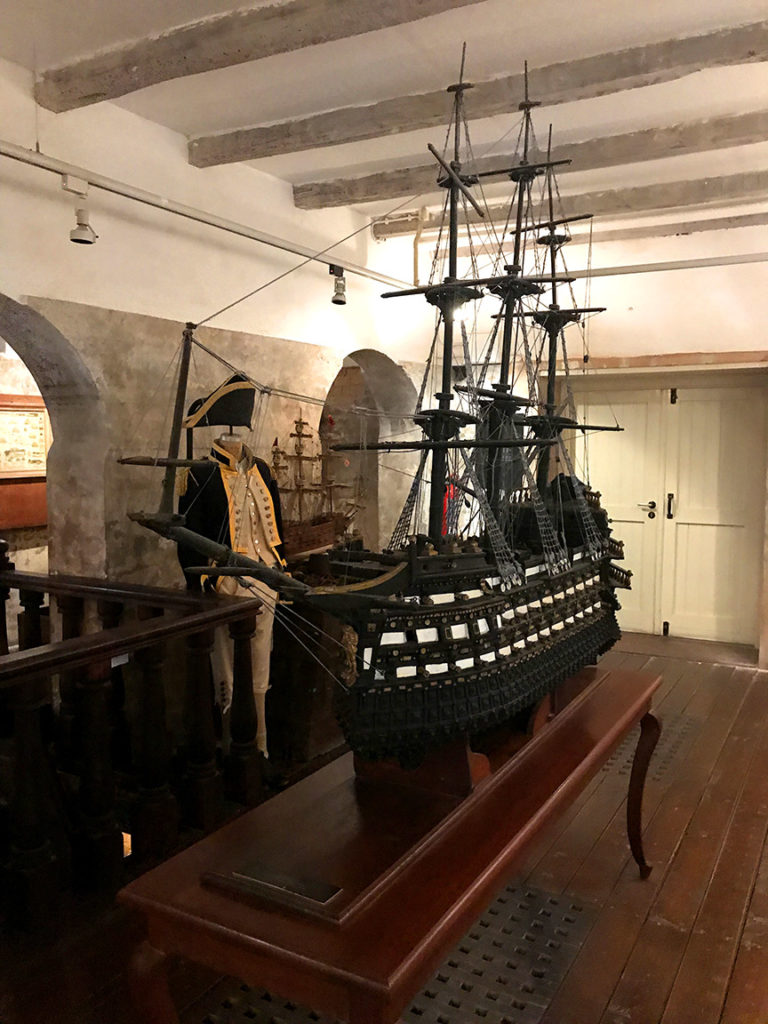 There were displays of slavery in America. The most compelling part of that exhibit was how colored people were considered and treated as property. There were photographs of sale signs (owners selling slaves), signs of owners offering rewards for runaway slaves or of owners looking for slaves that were kidnapped by other white men. The life of the black man was measured only in monetary worth.
There were displays of slavery in America. The most compelling part of that exhibit was how colored people were considered and treated as property. There were photographs of sale signs (owners selling slaves), signs of owners offering rewards for runaway slaves or of owners looking for slaves that were kidnapped by other white men. The life of the black man was measured only in monetary worth.
One part of the exhibit showed Marcus Garvey and was dedicated to his role as a black leader, liberator and pioneer for the emancipation of the black race. There was an ‘eerie’ display of the Klu Klux Klan (KKK) uniform, and displays of the Buffalo Soldier and the role they played in the American Civil War to bring an end to slavery. This immediately brought to my mind the song of the same title by Bob Marley.
The museum tour ended on a high note however that enforced the fact that although our race was enslaved we have made mammoth strides. We have great examples of individuals who pioneered this change; Malcolm X, Martin Luther King, Marcus Garvey, Rosa Parks and more recently, our 44th President, Barak Obama. An exhibition that started out as a very sad yet informative telling of our history, towards the end made me realize that no matter where we are, how far from home we travel, we all belong to the human race. As humans, we have done grave injustices to each other. During the dark period of our history, blacks we treated as property to be bought and sold at the White man’s whim. Our race was treated so horribly, yet we are still here today, fighting in our country, in our communities even in our own families for the right to be treated fairly and equally. The wonderful thing that makes me most proud is we are still fighting; we never give up. Throughout different eras of history we were oppressed time and time again, and even now in present day politics it is still evident. But I look up to my race as a people who never give up, a people with an indelible spirit. Leaders have emerged from among us that give us great examples of people who don’t give up, nor take the easy way out.
]]>No matter what, as Maya Angelou appropriately states,
“still we rise.”
